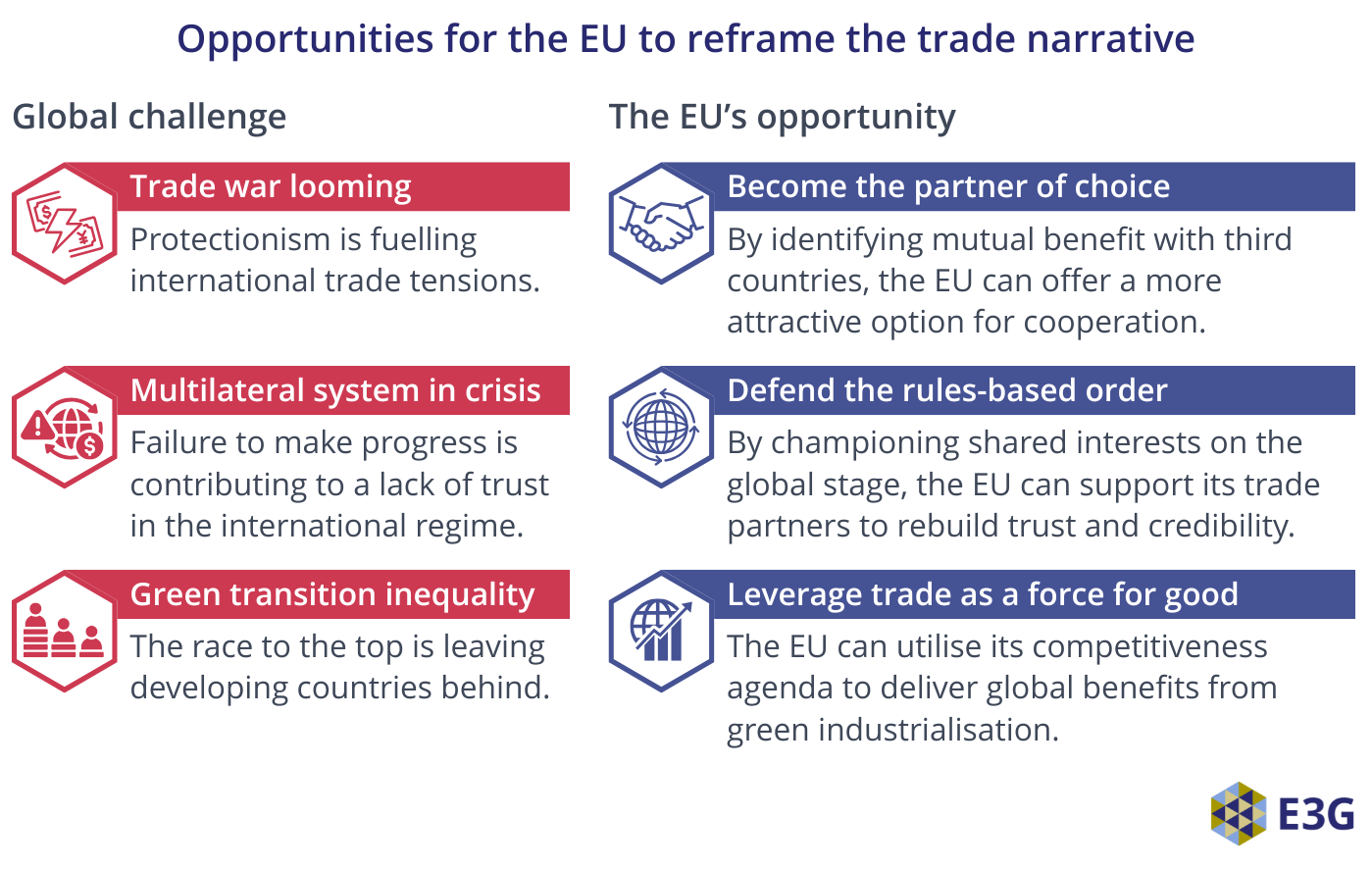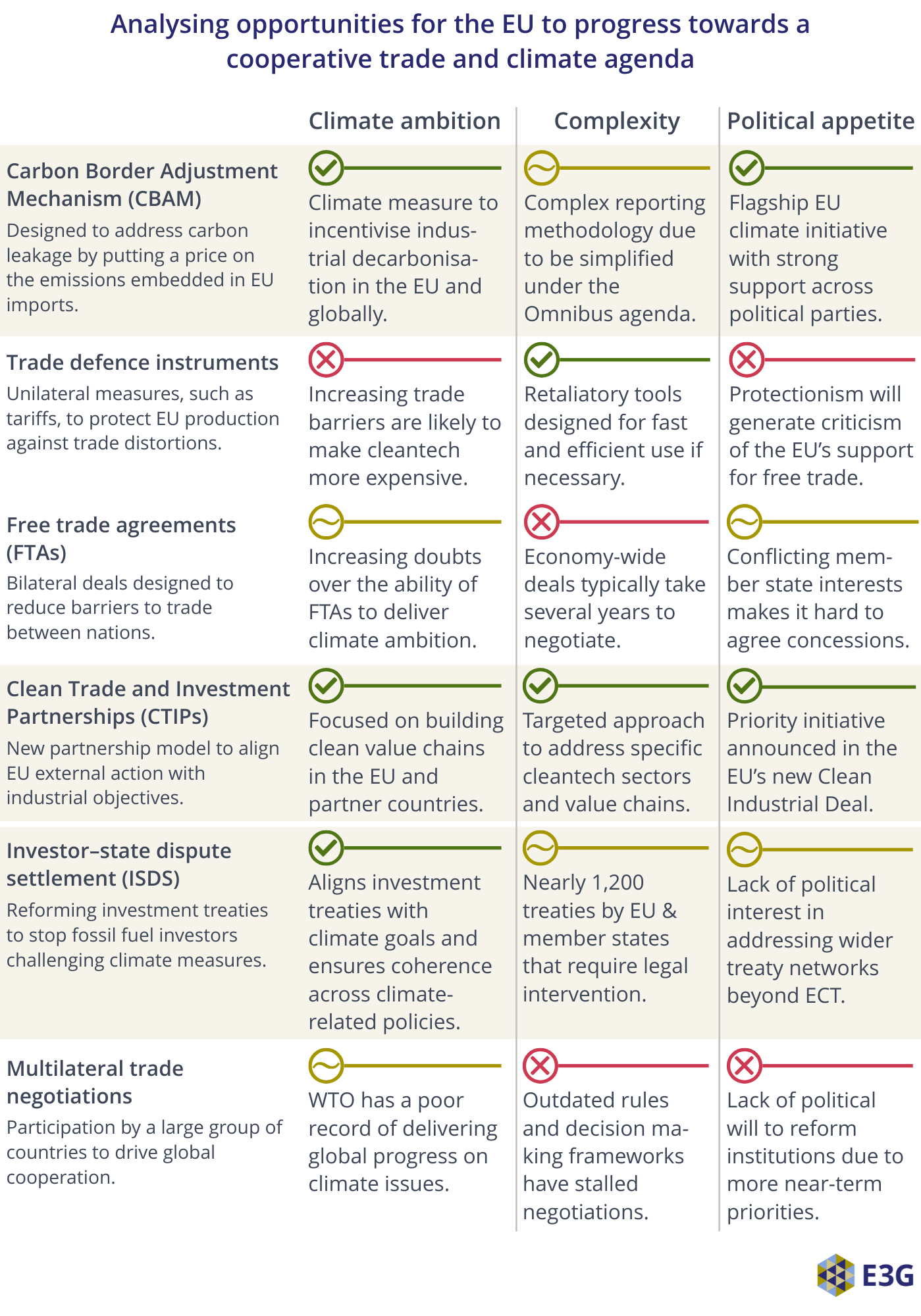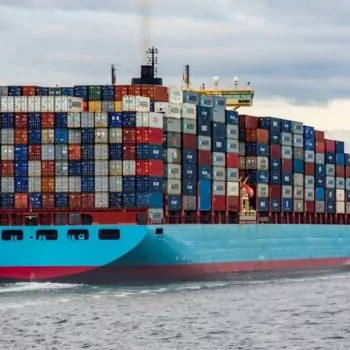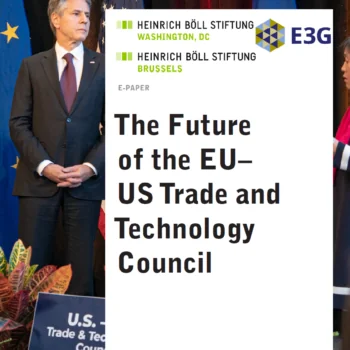It is a critical moment for EU trade policy. The global trading system is in a period of unprecedented change, fuelled by rising protectionism and geopolitical instability. Strengthening its bilateral trade relationships offers the EU the best opportunities to continue to make headway towards its strategic objectives and re-establish a positive role for trade cooperation in an increasingly volatile world.
The EU’s trade policy is in a defensive position, with all eyes focused on the reaction to tariffs imposed by the new US administration. But the EU must look long-term and use this opportunity to strengthen its bilateral trade relationships with the rest of the world. Trade remains a vital mechanism for international cooperation among the majority of countries, and global climate cooperation cannot be put on hold.
Finding opportunities amid challenging dynamics
With multilateral institutions struggling to make progress, bilateral relationships offer an important framework for the EU to continue to drive progress towards a cooperative trade and climate agenda. By exploring countries’ shared interests, the EU can rebuild its credibility on the world stage and defend the rules-based order. Relationships cultivated in that spirit can deliver global benefits, while also serving EU priorities including competitiveness, security and resilience – as well as decarbonisation.

Evaluating the EU’s trade and climate toolkit, we identify that the EU’s best opportunities to drive forward a proactive trade and climate agenda lie in:
- Proactive diplomatic engagement on the Carbon Border Adjustment Mechanism (CBAM) to rebuild trust with trade partners.
- Achieving quick wins through new Clean Trade and Investment Partnerships (CTIPs) to accelerate the clean energy transition at home and abroad.
- Reforming investment treaties with investor–state dispute settlement (ISDS) provisions to align the EU’s wider investment treaty networks with its climate goals.
Diplomatic engagement on the Carbon Border Adjustment Mechanism (CBAM)
The CBAM is a unilateral measure intended to reduce the risk of carbon leakage, but has implications for the EU’s bilateral relationships due to its impact on trade partners. The EU has already received external criticism of the CBAM, and there is a risk that proposed changes following the review in 2025 could exacerbate this.
Achieving quick wins through Clean Trade and Investment Partnerships (CTIPs)
CTIPs are a new instrument for bilateral partnerships, announced as part of the Clean Industrial Deal, and designed to complement the existing free trade agreement (FTA) model. CTIPs will offer more targeted arrangements to more rapidly secure cooperation with third countries in clean sectors and value chains.
CTIPs should set clear principles for maximising mutual benefit to accelerate the clean transition at home and abroad. They should be designed to deliver quick wins but also have the flexibility to evolve in line with partner country needs. With the right funding and robust internal governance, they can provide a strong foundation for the EU to build strategic cooperation with a wider range of countries, including those negatively affected by the CBAM.
Reforming investment treaties with investor–state dispute settlement (ISDS) provisions
In June 2024, the EU formally gave notice of its exit from the Energy Charter Treaty (ECT) – as have 10 member states. A key reason was the ECT’s continued protection of fossil fuel investments through ISDS.
However, nearly 1,200 other treaties with ISDS provisions remain unaddressed. This holds back the energy transition in third countries, undermines the EU’s clean investment agenda, and weakens the credibility of the EU’s commitment to the global clean transition.
The EU needs to review its approach to ISDS and consider excluding fossil fuel investments from treaty protection or terminating other investment treaties. Ongoing FTA negotiations with India and Indonesia, and new CTIPs, over the EU an opportunity to consider a more progressive stance on ISDS.



